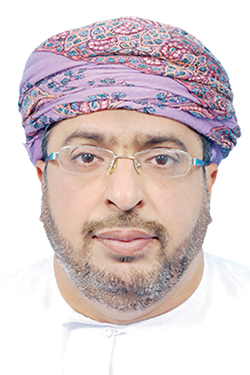

In line with enhancing Oman’s logistics infrastructure in various economic sectors, especially in the travel, tourism and trade sector, a number of new sea ports and airports were constructed. To efficiently activate and operate these vital structures, global airlines and container ship and vessel companies were invited to operate more ships and planes to the modern Omani facilities.
Days ago, Qatar Airways announced it will launch flights to Suhar Airport, which is 200 km from both the capital Muscat and Dubai, UAE. In a recent statement, the Qatari airline said it will launch flights to Suhar on August 8, a new destination, besides Muscat International Airport and Salalah International Airport.
The new route will be operated by an Airbus 320, also used by Qatar’s carrier in Middle East routes. No doubt the ambitious plans for Qatar Airways to expand its routes
across the world give travellers various choices to reach nearby and distant destinations, and highlight the company’s vision and mission of being present everywhere.
The launch of the new route to Suhar gives Omani and Qatari businessmen an opportunity to enhance trade relations and develop trade exchanges between the two countries. Today, Suhar has become a port for the world’s largest vessels through Suhar Industrial Port, which has been equipped with state-of-the-art facilities along with many docks and giant cranes that can handle different types of goods, commodities and containers.
Meanwhile, Suhar Airport has recently welcomed the first flight of Air Arabia, the Sharjah-based airline, together with operation from SalamAir which increased its flights from Suhar Airport. These flight operations to Omani airports will, no doubt, boost trade and tourism among GCC states in the coming period.
This policy requires optimal utilisation of logistics projects, natural resources available and Oman’s strategic location, while working on recycling financial surpluses from the oil sector to finance infrastructure projects, seaports, airports and highways to enhance the Sultanate’s logistics position.
Oil output in the GDP is expected to decrease at current prices from 44 per cent during the period from 2011-2015 to 30 per cent by 2020. In the travel and tourism industry, a lot can be done and utilised within the components not yet exploited in this respect, in addition to utilising Oman’s strategic location at the centre of the world’s three major continents (Asia, Africa and Europe) and enhancing its ability to host and organise more international and regional major events to attract more investors and tourists to the country.
Implementing such projects is in line with the economic diversification policy and utilising and promoting non-oil resources, which constitute the main economic goals of approved planning in the Sultanate. Economic diversification is currently considered a strategic approach for driving growth in light of global oil market conditions, which necessitate shift from an economy that depends on a single commodity — oil — to the development of other sectors to push forward the overall development process.
This requires introducing positive changes in the national economy through the development of non-oil projects, focus on promising sectors in the Sultanate that have a clear comparative advantage, such as the tourism sector, etc and eliminating any obstacles that limit utilisation of such resources.
There are countless opportunities and possibilities in this sector, as much as there is a great chance of improving the situation of Omani workers in this sector.
This is achievable through potential opportunities in case this sector grows and expands, including travel, entertainment, amusement parks, tours, etc. alongside effective utilisation of existing facilities in accommodation, lodging, catering, transport and so forth.
All of this requires two-fold development of investment to realise the Sultanate’s ambitions for this sector, which makes it imperative to facilitate investment from the private sector.
haider al lawati
haiderdawood@hotmail.com
Oman Observer is now on the WhatsApp channel. Click here



